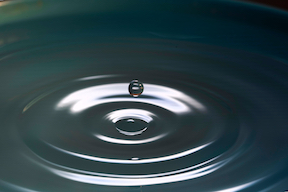Book and project launches are tricky times.
There’s a mix of excitement and disappointment, feelings of deep satisfaction and completion alongside with some particularly stinging rejections.
One thing that’s helped me a lot this week is this wonderful essay by the great Ursula K. Le Guin:
Maybe it’ll help you, too….
The Election, Lao Tzu, a Cup of Water
by Ursula K. Le Guin
We have glamorized the way of the warrior for millennia. We have identified it as the supreme test and example of courage, strength, duty, generosity, and manhood. If I turn from the way of the warrior, where am I to seek those qualities? What way have I to go?
Lao Tzu says: the way of water.
The weakest, most yielding thing in the world, as he calls it, water chooses the lowest path, not the high road. It gives way to anything harder than itself, offers no resistance, flows around obstacles, accepts whatever comes to it, lets itself be used and divided and defiled, yet continues to be itself and to go always in the direction it must go. The tides of the oceans obey the moon while the great currents of the open sea keep on their ways beneath. Water deeply at rest is yet always in motion; the stillest lake is constantly, invisibly transformed into vapor, rising in the air. A river can be dammed and diverted, yet its water is incompressible: it will not go where there is not room for it. A river can be so drained for human uses that it never reaches the sea, yet in all those bypaths and usages its water remains itself and pursues its course, flowing down and on, above ground or underground, breathing itself out into the air in evaporation, rising in mist, fog, cloud, returning to earth as rain, refilling the sea. Water doesn’t have only one way. It has infinite ways, it takes whatever way it can, it is utterly opportunistic, and all life on earth depends on this passive, yielding, uncertain, adaptable, changeable element.
The death way or the life way? The high road of the warrior, or the river road?
~~~
I know what I want. I want to live with courage, with compassion, in patience, in peace.
The way of the warrior fully admits only the first of these, and wholly denies the last.
The way of the water admits them all.
The flow of a river is a model for me of courage that can keep me going — carry me through the bad places, the bad times. A courage that is compliant by choice and uses force only when compelled, always seeking the best way, the easiest way, but if not finding any easy way still, always, going on.
The cup of water that gives itself to thirst is a model for me of the compassion that gives itself freely. Water is generous, tolerant, does not hold itself apart, lets itself be used by any need. Water goes, as Lao Tzu says, to the lowest places, vile places, accepts contamination, accepts foulness, and yet comes through again always as itself, pure, cleansed, and cleansing.
Running water and the sea are models for me of patience: their easy, steady obedience to necessity, to the pull of the moon in the sea-tides and the pull of the earth always downward; the immense power of that obedience.
I have no model for peace, only glimpses of it, metaphors for it, similes to what I cannot fully grasp and hold. Among them: a bowl of clear water. A boat drifting on a slow river. A lake among hills. The vast depths of the sea. A drop of water at the tip of a leaf. The sound of rain. The sound of a fountain. The bright dance of the water-spray from a garden hose, the scent of wet earth.

